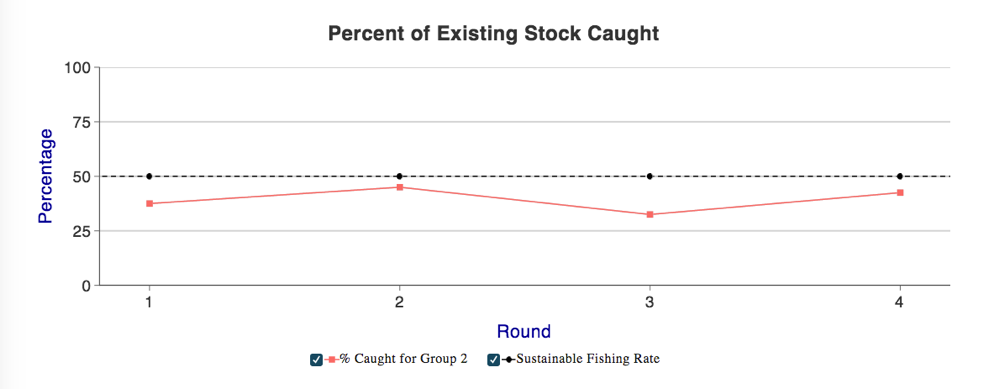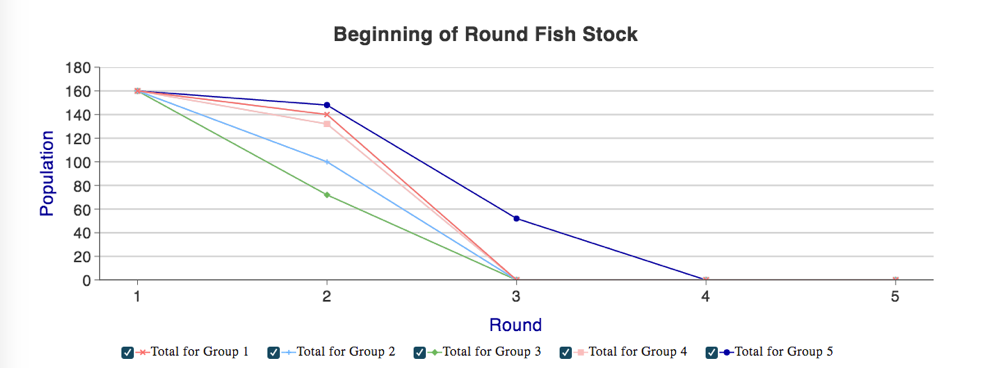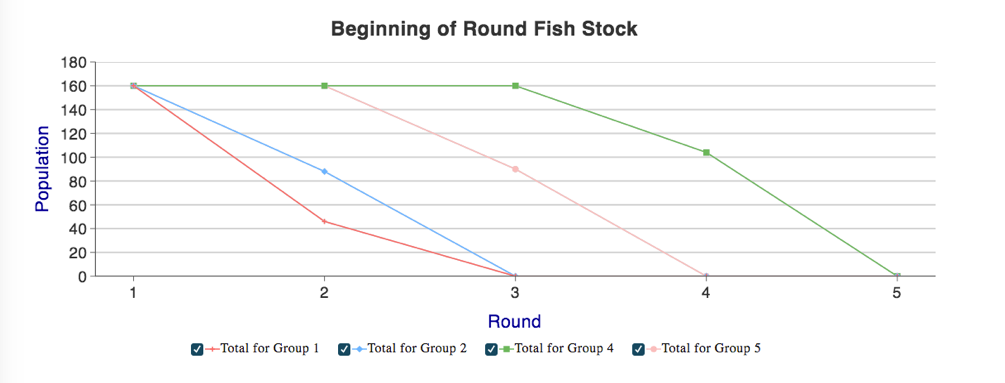 Aa
Aa

 Aa
Aa

This 25-minute module assumes students have not been introduced to the ”tragedy of the commons“. The primary learning objective is to have students experience each individual’s incentive to over-consume a shared resource. The instructor has the option of adding an additional game (9 minutes) to show how communication may improve outcomes.
This module is built for classes below 100 students. For classes of 100 students or more, we recommend increasing the group size to 10.
The game starts with each group's fish stock at the lake's capacity: 40 fish for each student. Each round, students simultaneously choose how many fish to catch. At the end of each round, the fish double, up to a maximum of lake capacity. At the end of the game, the doubled fish stock is evenly divided amongst the group. As a result, the group catching half of the stock in every round maximizes total fish caught.
To help students this, each student is her own group in Game 1. In Game 2, each group contains four students, likely resulting in over-fishing. In optional Game 3, the introduction of communication often helps alleviate the tragedy.
You are the captain of the only fishing boat on a lake. The lake starts at its maximum capacity of 40 fish. Each round, you catch fish by clicking on the boat. At the end of each round ,the remaining fish stock doubles up a maximum of the lake’s capacity. Ending a round with 18 fish results in 36 at the start of the next round, while ending with 22 only results in 40, the lake’s capacity.
You get one point for each fish you catch. And, at the end of the fourth and final round, the fish stock doubles up to a maximum of the lake’s capacity, and you receive one point for each fish. Are there any questions?

(Figure 1: Typical Results from Commons: Fishery Game for “Percent of Existing Stock Caught” N=1. Click to enlarge)

(Figure 2: Typical Results from Commons: Fishery Game N=4. Click to enlarge)

(Figure 3: Typical Results from Commons: Fishery N=4 with Communication. Click to enlarge)
“A striking aspect of the discussion rounds was how rapidly the subjects, who had not had an opportunity to establish a well defined community with strong internal norms, were able to devise their own agreements and verbal punishments for those who broke those agreements.” (Ostrom, Walker, and Gardner, 1992, p. 410).